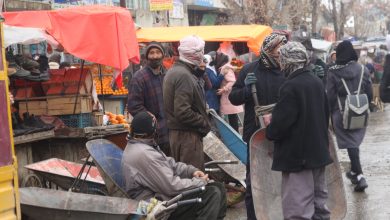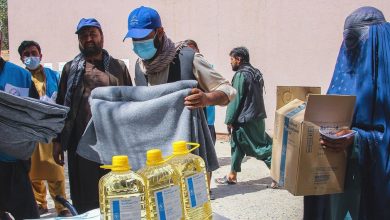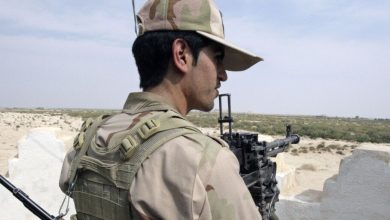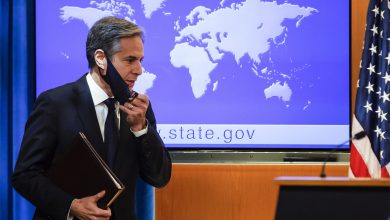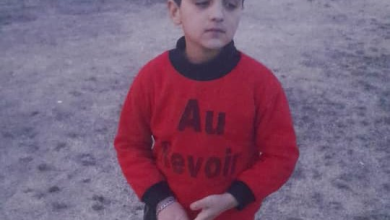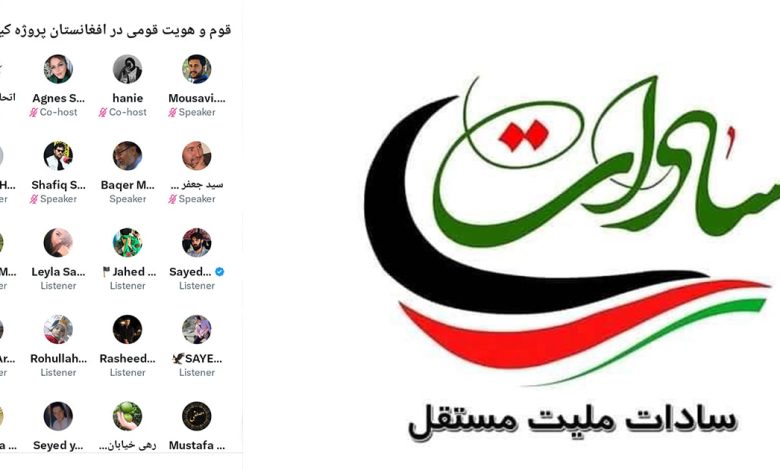
Virtual meeting of Sadat activists in Afghanistan; the history and culture of the Sadat tribe should be developed
Bayan News
A group of Sadat activists and youth in Afghanistan emphasized the creation of solutions and the development of a program with scientific, practical, and historical support by launching a Twitter space.
This space, titled “Who is the People and National Identity in Afghanistan, Project?” was held on Thursday night (July 26) with the participation of dozens of Sadat and other ethnic groups. Sadat activists, including Baqir Masbahzadah, Sayyed Jafar Adeli, Sayyed Hashemi Parwani, Sayyed Naqi Musavi, and Shafiq Sadat, discussed the Sadat tribe and offered solutions for the future generations of this tribe.
Mr. Adeli stated in the Twitter program that the national issues that have arisen in recent years date back to the first constitution, in which the elders of the Sadat tribe did not pay attention and did not consider the separation of the Sadat from the Hazara tribe in the constitution as beneficial to the interests of the Shia community.
According to Adeli, the consequence of the elders’ neglect during the drafting of the constitution and the inclusion of tribes in it became apparent later to the Sadat community in Afghanistan, and those who deserved to be in power were deprived of their basic rights due to the absence of the Sadat tribe in the constitution.
He added that those Sadat elites who had reached high ranks in the republican system were based on their competence, not nationality.
Adeli, by stating that the Sadat tribe was deprived of their citizenship rights, reminded that for this reason, lawsuits were filed, and self-motivated Sadat youths gathered signatures until the government was forced to recognize the Sadat tribe.
At the same time, Sayyed Baqir Masbahzadah stated at the beginning of his remarks that the structure of the Afghan government is based on ethnicity, and over time, the ruling ethnicity wanted to redefine Afghanistan to expand its national authority, and this began with the time of Amanullah Khan.
Masbahzadah emphasized that as long as the issue of ethnic conflicts is not resolved at the country level, parts of society will be affected by it.
Referring to the root of the ethnic tension between the Sadat and Hazara tribes, he said, “Unfortunately, based on the national thinking that existed in Afghanistan and the tension that arose, during the time of Dawood Khan, who was the Prime Minister of Pakistan, the issue of Pakistan arose, and the discussion turned to military action. The Afghan government brought up the issue of Pashtunistan to counter Pakistan.”
According to Masbahzadah, they (Pakistani intelligence) tried to create a national problem against the Dawood government inside Afghanistan. “They created a new generation of Mongols through the Kuchi Hazaras, which was led by the People’s Party of Pakistan, headed by General Bhutto. That is, in this case, the founder of today’s terrorism is Pakistan.”
Masbahzadah added that tensions between the Sadat and Hazara tribes began at that time, and from these tensions, individuals like Mohaqqeq and Khalili used it as a spearhead of hostility against the Sadat. He further added that propaganda against the Sadat began from that time, but the elders of the tribe remained silent. “The only person who stood up against this trend was martyr Mesbah, but none of them supported him.”
He added that in recent years, there has been a one-sided attack against the Sadat, and now such things are happening on social networks, but no one is defending them, and everyone is indifferent.
This Sadat activist further reminded that some of the Sadat elders viewed this national issue as worthless based on grandiosity and personality, and thought that ethnicity was the work of illiterate and weak people, but this gradually led to a tragedy.
On behalf of the Sayyeds, Hashemi Parwani emphasized the need to learn from the past and focus on what needs to be done for the future to ensure that the Afghan Sayyids have access to their fundamental rights and citizenship.
He stated that the political parties and groups led by Sayyeds were responsible for what the Sayyed community in Afghanistan is currently facing.
According to Hashemi Parwani, some important government institutions that were allocated quotas had deprived talented young Sayyids of all opportunities due to the absence of Sayyids in the constitution.
Hashemi Parwani referred to the youth movement of the Sayyeds in 2029 and said: “One of the greatest opportunities that this movement provided was that it started from the bottom, from the masses towards the top; some of those who were in the parties and led the groups were forced to join in because they did not want to lose their positions, and in order to convince the people, we had to have something in our hands. When we defined the plan, no enemy could stand in our way, and this is how the Sayyids gain power.”
At the same time, Mr. Shafiq Sadat reminded that when discussing the Sayyed community, partisan issues should be set aside, and when presenting this community, no one should be given various titles. He continued to suggest that Sayyed elites and activists should not follow the “blind nationalistic ideology” of other ethnic groups; rather, they should understand all the realities of Afghanistan with awareness to accomplish more.
Shafiq Sadat emphasized that in order to define a strategy to empower the Sayyeds in Afghanistan, more literature needs to be created. Sayyed Naqi Musavi said that more work should be done in the economic and political areas to strengthen the Sayyed community in Afghanistan, and a circle of Sayyed elites should be formed to present plans and search for channels for more activity.
However, Mesbahzadah stated that without formulating a plan and a solution, no progress can be made, and the plan must have substantive content and scientific, practical, and historical support, as well as a plan for its implementation.
He added that intellectual work should be done to develop the history and culture of the Sayyeds, and if such activities are not carried out, the Sayyeds will disappear.
On behalf of the Sayyeds, Hashemi Parwani first emphasized that by learning from the past, attention should now be focused on what needs to be done for the future so that the Sayyeds of Afghanistan have access to their fundamental rights and citizenship.
He stated that what is happening to the Sayyed community in Afghanistan today is the fault of political parties and groups whose leaders were Sayyids.
According to Hashemi Parwani, some of the important institutions of the Republic government that were allocated quotas had deprived talented Sayyed youth of all opportunities due to the absence of Sayyeds in the constitution.
Referring to the youth movement of the Sayyeds in 2029 AD, Hashemi Parwani said, “One of the biggest opportunities that this movement had was that it started from the bottom, from the masses towards the top; some of those who were in political parties and were leaders of groups were forced to participate because they did not want to lose their position, and in order to convince the people, we had to have something in our pocket if the movement succeeded tomorrow and they said that they did not receive their share. ”
What needs to be done?
Shafiq Sayyed says that Sayyed elites, including writers, should work on a precise and comprehensive strategy in the true sense of the word.
He clearly stated that in order to maintain the power and position of the Sayyed community in the structure of Afghanistan, internal hostility must be eliminated at any cost so that cohesion is created among the Sayyed community. “When we defined the program, no enemy can stop us, and in this way, Sayyeds reach power.”
At the same time, Mr. Shafiq Sayyed still remembers that when the issue of the Sayyed community is pursued, party issues should be set aside and when raising the issue of this community, no one should be given different titles.
He continued to suggest that Sayyed elites and activists should not follow the “blind nationalist ideology” of other ethnic groups; with awareness, all the realities of Afghanistan should be understood so that more work can be done.
Sayyed Naqi Musavi says that in order to strengthen the Sayyed community of Afghanistan, more work needs to be done in the economic and political spheres; specifically, the circle of Sayyed elites should be formed and this circle should present plans and search for channels for more activities to take place.
He confidently stated that if such a circle is formed, individuals like Sayyed Bager Mohseni would not dare to take a stance against the Sayyed community.
However, Masbahzadah stated that without formulating a plan and a solution, nothing will be achieved. “The program should have substantive content, have scientific, practical and historical foundations, and there should be a plan for its implementation.”
He added that intellectual work should be done towards the development of the history and culture of the Sayyeds, and if there is no such activity, the Sayyeds will disappear.



